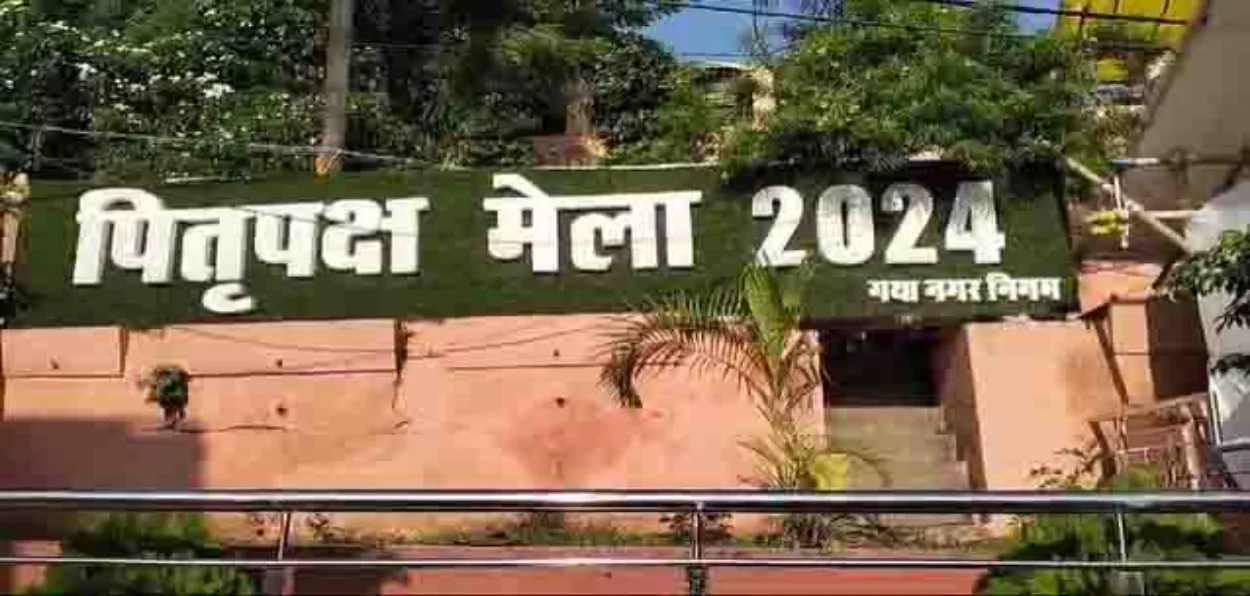
Jitendra Pushp / Gaya, Bihar
Muslims of Gaya town of Bihar produce and sell most of the stuff that Hindus need for praying at the Sri Vishnupad temple of Gayadham for the salvation of their ancestors.
Hindus come to the shrine of Vishnudham at Gaya to perform the Pinddaan for Shraddha-Karma rituals for their ancestors. The city authorities organise a Pitrapaksha fail for the fortnight that began on September 17.
Chhathu Vigha, located two kilometers from Shri Vishnupad Mandir is famous for flower crops. Here Flower are cultivated for on more some 20 acres of land from Lakhanpura to Chhathu Vigha for years.
The descendants of 62-year-old Mohammad Moinuddin, a resident of Chhathu Vigha have been cultivating flowers on about seven acres of land for three generations.
He cultivates jasmine, rose, marigold, hibiscus, and the holy basil (Tulsi). Mohammad Moinuddin says that the flowers and basil grown in his field are offered at Shri Vishnupad, Mangala Gauri, and other temples. In Mangala Gauri Temple, Maa Mangala has been adorned with flowers from his fields for years.
Moinuddin however wonders why Lord Vishnu is not defiled by being offered flowers and other material grown and manufactured by non-Hindus and yet the entry of non-Hindus is prohibited.
His grandfather Sajlu Mian started cultivating flowers on his seven acres of land with the inspiration of Mangala Gauri's priest Tara Guru Ji. Earlier, mango, guava, plum, lemon, and papaya were cultivated in this land. My grandfather started cultivating flowers with Odahul. Hibiscus flowers grown in his field are used to adorn Maa Mangala Gauri.
He said that his grandfather started flower farming in 1942. "My father Alimuddin continued the tradition. As the demand for flowers increased, the area under flower cultivation was also expanded in 1975.".
Along with Hibiscus, he started cultivating marigolds, roses, jasmine, kund (a variety of jasmine), and Tulsi. He said that the cultivation of flowers is a profitable business. Although there is a demand for flowers throughout the year in Mokshadham Gaya, its demand increases on the occasion of Pitru Paksha Mela."
Flowers and Tulsi are particularly offered in worship to seek moksha for ancestors (Salvation from the cycle of birth and death). After his father's death, he and his brothers took charge of flower cultivation.
Alimuddin is 62 years old and he says his son Rahimuddin will take charge soon. He has employed a farm labourer who picks flowers for sale in the market.
During the fortnight of Pitrapaksha (which often falls in September), Hindus visit the temple and offer prayers for their ancestors faith of Pinddaani is held in Gayadham, a great confluence of culture and reverence for ancestors.
This year about four lakh pilgrims visited Gaya for perorming Shrada of their ancestors. 45 Pidvedis were established at different places in Gayadham to enable visitors worship and perform pindaan.
ALSO READ: AMU's Suhail Sabir donates Rs 50 lakh for students' scholarships
Herds of pilgrims are seen passing through the narrow lanes of Gaya and coming to Devghat engrossed in rituals with a sense of devotion towards their ancestors. The Pitru Paksha fair concludes on October 2, on Pitru Amavasya.
The devotees take bath in the holy river Falgu, performing tarpan, aanchman, pinddaan, and shraddha rituals for the salvation of their forefathers.
